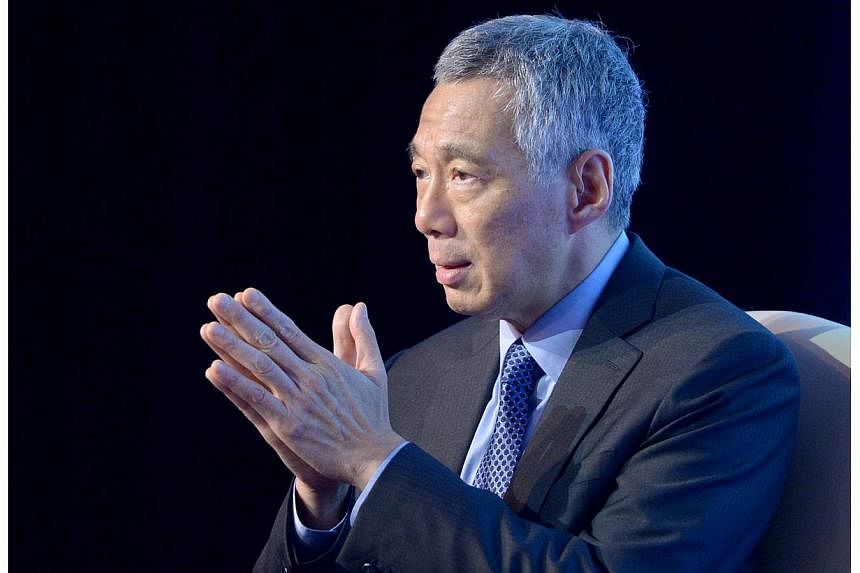SINGAPORE - THE threat of extremism cannot just be countered by security action, but has to involve understanding the religious and social dimensions of the problem, Prime Minister Lee Hsien Loong said on Friday.
"We must go beyond that, to the religious dimension: to rehabilitate apprehended terrorists so that they understand the error of their ways and can be safely released from prison or detention, and they do not fall prey again to a warped version of Islam," PM Lee said at the closing dinner for speakers and key guests of at a two-day symposium on rehabilitating and reintegrating radicals.
"We also need the social dimension: to reintegrate the former extremists back into society, so that they have family, friends and support, and are not ostracised or left at their wits' ends, and therefore vulnerable."
Mr Lee was speaking at the Khadijah Mosque, which hosts a resource and counselling centre for the Religious Rehabilitation Group (RRG), that brings together respected Muslim scholars who counsel terror detainees and radicalised individuals.
Their good work, Mr Lee added, had helped Singapore release from detention 57 extremists since 2003 - with only one case of recidivism.
The RRG has also reached out to the broader public to educate people about the erroneous teachings of radical ideologues.
Mr Lee said addressing these religious and social dimensions to the issue are key in the long term, and will help ensure Muslim communities prevent perverted and dangerous ideas from catching on, make sure that society is integrated and harmonious, and avoid religious enclaves, marginalisation and resentment from being created, which can feed extremism and terrorism.
That the different races and religions in Singapore have lived together in harmony for nearly 50 years is not incidental, he added.
Instead, it is "the result of a conscious and sustained effort to build trust and mutual understanding, to foster accommodation and give and take, to create extensive and strong personal links across racial and religious lines".
Close to 600 academics and officials gathered at the East Asia Summit Symposium on Religious Rehabilitation and Social Reintegration over the last two days to discuss ways to better manage the ongoing threat of extremism, especially in light of gains by militant group Islamic State of Iraq and Syria (ISIS). Participants were from 30 countries, including 18 East Asia Summit members.
"We've shared our experiences and expertise, we've picked up each other's ideas, and hopefully we will adapt and apply what we have learned when we go back home," Mr Lee said.


